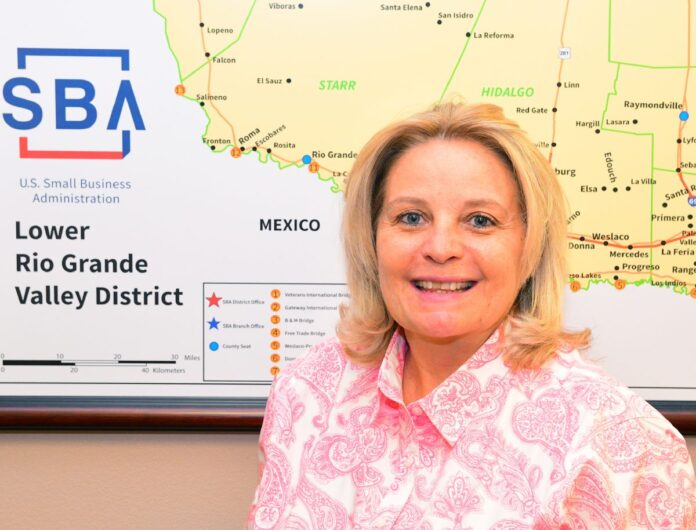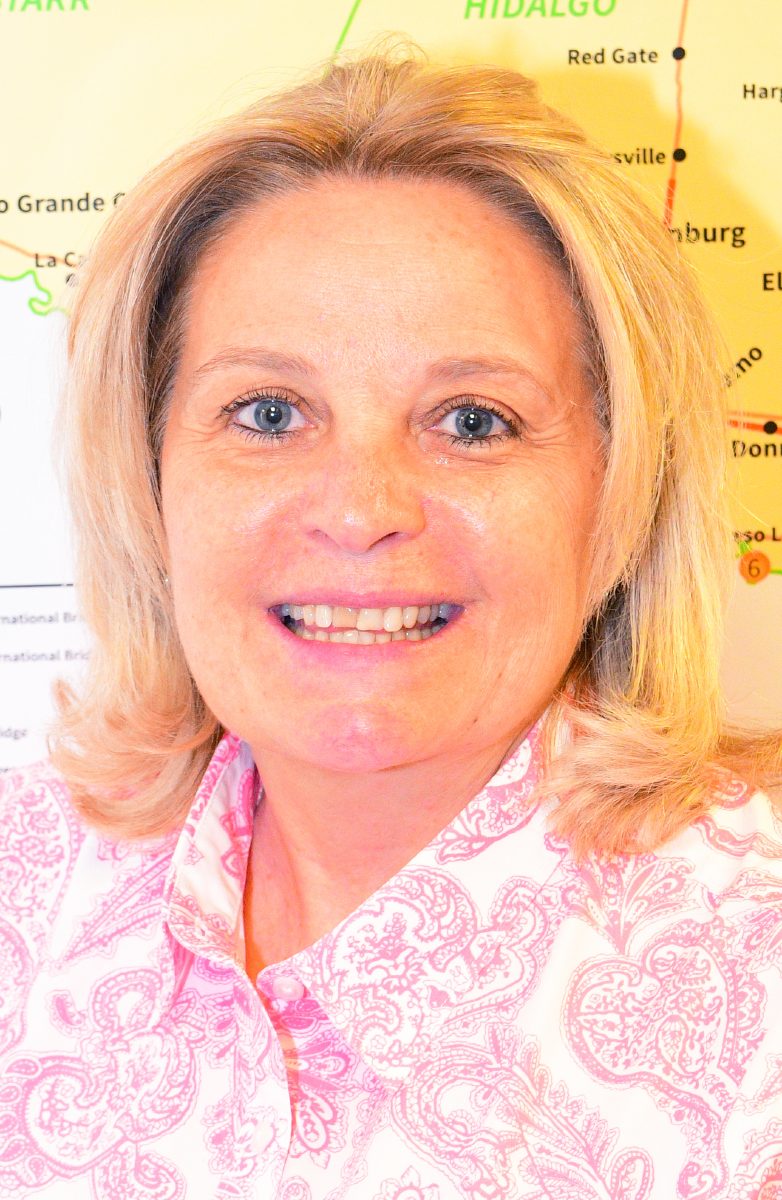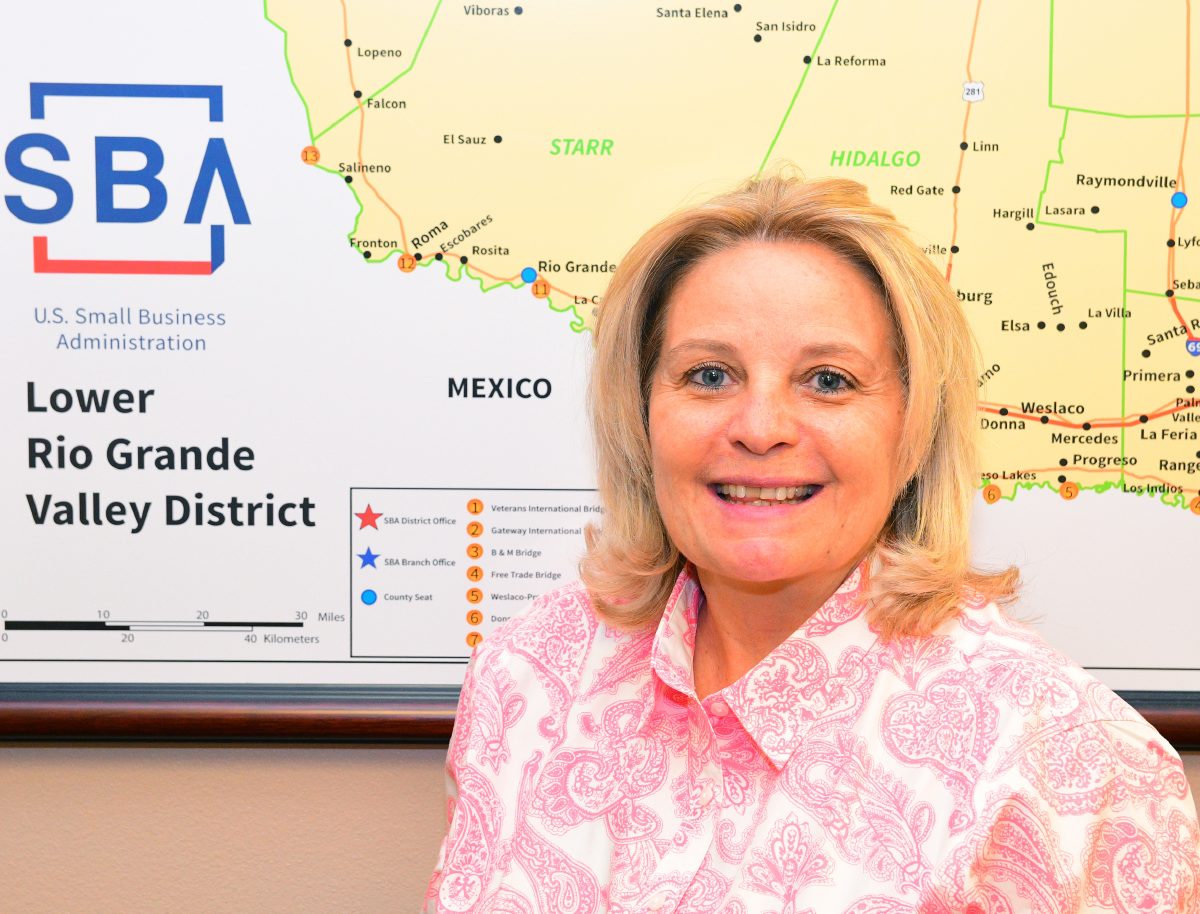HARLINGEN — The impact of natural or man-made disasters on families are only magnified for business owners.
And the federal Small Business Administration, in conjunction with the Insurance Institute for Business and Home Safety, is taking action to mitigate some of the effects on communities.
Business owners can log on to their Twitter account on Wednesday at 2 p.m. CDT for a national chat on problems disasters can rain down on businesses by using the hashtag #SBAchat. On Sept. 24 at 1 p.m. CDT, an online webinar also covering business planning for a disaster will be offered as well.
Both events are free but interested parties need to pre-register for the webinar.
Angela R. Burton, SBA’s district director for the 14-county Lower Rio Grande Valley District Office, said the purpose of the twin events is to raise awareness of pre-planning business owners should undertake now.
Have your critical documents secure, hopefully in a safe location off-site, know how and where to reach all employees at all times, check your insurance coverage and make sure the title to your property is clear.
“Your human capital is your most important capital,” Burton said of employees. “The other thing is making sure that your documents are in some sort of a digital format and that they are protected. In other words, you have them somewhere where they’re not going to get wet. Those could be your articles of incorporation, your insurance papers, your checkbook, your accounting documents, things like that.”
One of the best ways to do this, she said, is to scan these important documents and put them online in the cloud with a secure account and password.
But even if you aren’t that sophisticated, she said business owners need to make an effort to secure these critical documents.
“If you’re a small business and possibly not automated, and some folks aren’t, make sure that those items are in plastic,” she said. “And you have them somewhere you know they’re safe.”
Disaster planning in the Lower RGV often is directed to dealing with the aftermath of a potential hurricane. But Burton points out the two damaging June floods we’ve had back-to-back are a reminder there are other threats.
“Whether it’s a fire or flooding, a storm, or something falls on your building,” Burton said. “We’ve had incidents where cars have accidentally gone off-track and driven into a business. That is a form of disaster for that business.”
“I think just doing these few little things ahead of time you’ll have a lot less stress at a time of stress than if you’re trying to figure it out at that minute,” she added.
Insurance, and what kind, is another issue for businesses. After two floods, many residents of the RGV are certainly aware regular homeowners insurance doesn’t cover flood damage.
Yet wind damage is another area where special insurance may be required.
“I’m not an expert on it, but having the Texas windstorm insurance, which can be expensive, and also having flood insurance,” Burton said. “A lot of folks don’t know flood is not attached to your regular insurance. So they go, ‘Well, I have insurance,’ but it doesn’t include the windstorm or the flooding.”
Burton also recommends thinking about your supply chain. If your suppliers are local, it’s likely they’ll be having the same disruptions.
“Your supply chain might be local but you’ll want to make sure that you have information from folks outside of the area,” she said. “If you’re in a bad situation, then probably your supplier might be in a bad situation. So you want to make sure you’re able to have that supply chain and have some alternates ready.
“As a business, make sure that your suppliers have a plan in place,” Burton added.
Another issue a business owner may not have considered is having clear title to their property.
“One of the other issues that I’ve heard my counterparts talk about in having issues is sometimes we pass properties along throughout our families,” she said. “And sometimes those properties don’t get passed along properly. In other words, the title doesn’t get passed along property.
“We go to get a loan or even assistance and you’ve got to show proof so you come up with your title, and here’s a title that has your grandfather’s name and your grandfather may be deceased, so we’re having an issue at that point. And that happens.”
Having up-to-date and complete business and title records can smooth things over when seeking disaster relief funds after an event, or even SBA assistance.
“We do at the SBA have what they call bridge loans,” she said. “If you’re having insurance coming in and you’re kind of in that area where you’re in a hold, there is a bridge loan.”
Burton said attending to details like this before a business is damaged in a disaster can go far in dealing with its fallout effectively.
“I think just doing these few little things ahead of time you’ll have a lot less stress at a time of stress than if you’re trying to figure it out at that minute,” Burton said.
Twitter chat
WHAT — “How to Prepare Your Business Before Disaster Strikes.”
WHO — Small Business Administration and the Insurance Institute for Business and Home Safety
WHERE — Twitter. Hashtag #SBAchat
WHEN — 2 p.m. CDT Wednesday, Sept. 18
Webinar
WHAT — Online webinar on fortifying your property against natural hazards
WHO — Small Business Administration and the Insurance Institute for Business and Home Safety
WHERE — Online. Register at https://register.gotowebinar.com/register/632869398633404429
WHEN — 1 p.m. CDT Tuesday, Sept. 24







